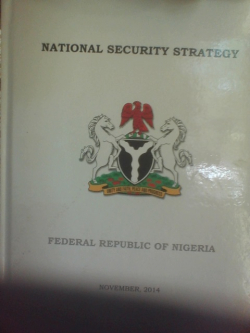Preventive Defense: A New Security Strategy for America

Buy online ($)
Type
Book
Authors
ISBN 10
081571307X
Category
355-Military Science
[ Browse Items ]
Publication Year
2000
Publisher
Pages
243
Subject
National security -- United States; World politics -- 1989-; Twenty-first century -- Forecasts; United States -- Military policy;
Tags
Abstract
William J. Perry and Ashton B. Carter, two of the world's foremost defense authorities, draw on their experience as leaders of the U.S. Defense Department to propose a new American security strategy for the twenty-first century. After a century in which aggression had to be defeated in two world wars and then deterred through a prolonged cold war, the authors argue for a strategy centered on prevention. Now that the cold war is over, it is necessary to rethink the risks to U.S. security. The A list--threats to U.S. survival--is empty today. The B list--the two major regional contingencies in the Persian Gulf and on the Korean peninsula that dominate Pentagon planning and budgeting--pose imminent threats to U.S. interests but not to survival. And the C list--such headline-grabbing places as Kosovo, Bosnia, Somalia, Rwanda, and Haiti--includes important contingencies that indirectly affect U.S. security but do not directly threaten U.S. interests. Thus the United States is enjoying a period of unprecedented peace and influence; but foreign policy and defense leaders cannot afford to be complacent. The authors' preventive defense strategy concentrates on the dangers that, if mismanaged, have the potential to grow into true A-list threats to U.S. survival in the next century. These include Weimar Russia: failure to establish a self-respecting place for the new Russia in the post-cold war world, allowing it to descend into chaos, isolation, and aggression as Germany did after World War I; Loose Nukes: failure to reduce and secure the deadly legacy of the cold war--nuclear, chemical, and biological weapons in Russia and the rest of the former Soviet Union; A Rising China Turned Hostile: failure to shape China's rise to Asian superpower status so that it emerges as a partner rather than an adversary; Proliferation: spread of weapons of mass destruction; and Catastrophic Terrorism: increase in the scope and intensity of transnational terrorism.They also argue for better management of the defense establishment so the United States will retain a strong military prepared to cope with all contingencies, deter aggressors, and win a conflict if deterrence fails.
Biblio Notes
CONTENTS
CHAPTER ONE
Pursuing Marshall’s vision with Russia and NATO………………..……P. 21
CHAPTER TWO
Project Sapphire. The Nunn-Lugar Program and Arms Control….p. 65
CHAPTER THREE
Dealing with a Rising China…………………………………………………..…….p. 92
CHAPTER FOUR
Standing at the Brink in North Korea: The Counter proliferation Imperative……………………………………………………………………….....………P. 123
CHAPTER FIVE
A False Alarm (This Time):
Preventive Defense against Catastrophic Terrorism…………....…….P. 143
CHAPTER SIX
The Threat Within:
Shaping a Force for the Future………………………………………...………..P. 175
CHAPTER ONE
Pursuing Marshall’s vision with Russia and NATO………………..……P. 21
CHAPTER TWO
Project Sapphire. The Nunn-Lugar Program and Arms Control….p. 65
CHAPTER THREE
Dealing with a Rising China…………………………………………………..…….p. 92
CHAPTER FOUR
Standing at the Brink in North Korea: The Counter proliferation Imperative……………………………………………………………………….....………P. 123
CHAPTER FIVE
A False Alarm (This Time):
Preventive Defense against Catastrophic Terrorism…………....…….P. 143
CHAPTER SIX
The Threat Within:
Shaping a Force for the Future………………………………………...………..P. 175
Number of Copies
1
| Library | Accession No | Call No | Copy No | Edition | Location | Availability |
|---|---|---|---|---|---|---|
| Main | 746 |
355.0 CAR |
1 | Yes |




